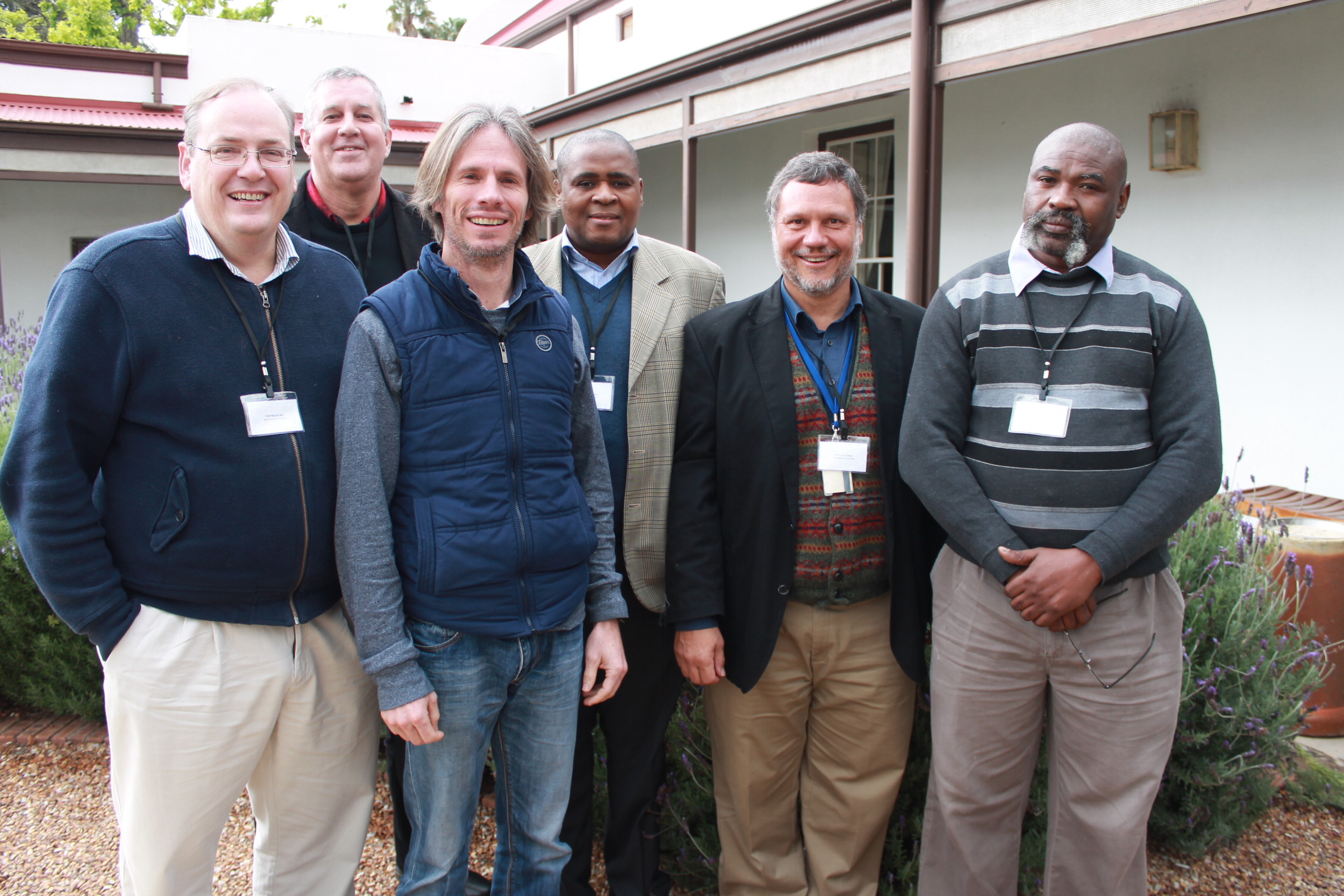A proposed research centre that will study the interpretation of the authoritative scriptures of three religious constituencies in South Africa – Christianity, Islam, and Judaism – can help to promote dialogue between these religions, improve their relations and contribute to greater social cohesion in the South African society.
This is, in short, the vision of a project of creating the Centre for the Interpretation of Authoritative Scriptures (CIAS) at the Faculty of Theology at Stellenbosch University (SU). This project gained momentum last week (13 September) during a multidisciplinary workshop for the Development of a Theoretical Basis of the proposed CIAS at STIAS.
The workshop was attended by role-players from different disciplines and religious constituencies from Stellenbosch University and other institutions in South Africa as well as the neighbouring country Botswana. Speakers at the conference were professors Louis Jonker, Jeremy Punt, Aslam Fataar, Marius Nel, Xolile Simon, Reggie Nel, Nuraan Davids, Christo van der Merwe, and doctors Ntozakhe Cezula, Peter Nagel, as well as postgraduate students Slindile Thabede, and Paul Adebayo (all from SU), professors Abdulkader Tayob, Sa'ddiyah Shaikh (both from UCT), Muhammed Haron (University of Botswana), Rashied Omar (University of Notre Dame, and imam of the Kenilworth Mosque), Klippies Kritzinger (from UNISA) and Ashraf Dockrat (from UJ).

Picture: People involved from the beginning of the project are, from left, Prof Marius Nel, Prof Jeremy Punt, Dr Peter Nagel, Prof Xolile Simon, Prof Louis Jonker
and Dr Ntozakhe Cezula.
Prof Eugene Cloete, Vice-Rector: Research and Innovation at SU, indicated in his opening address at the workshop that he supports this project as it is aligned with the vision of SU of being a research intensive university. It is important to SU to not only identify relevant research areas but also to see to what extent the research will make an impact on society.
“We have identified specific areas of research where we think the areas are important. Collaboration nationally and internationally is extremely important. Unfortunately, universities in South Africa has the mind-set that they are in competition with one another. This has led to no natural cooperation between one another. We need to share knowledge and collaborate with one another."
“I am pleased about the focus of the Centre that will be on research. It falls in with the strategy of SU. I want to congratulate and thank the initiators of the project. It will be important for all of you to listen to each other, there will be different perspectives, which is fantastic. Path out the research path for the next five years and beyond, make sure the networks are solid, that the research is good and then we will see the benefit to society at large of what you are doing," said Cloete.
The idea of establishing CIAS came from Prof Louis Jonker from the Faculty of Theology who investigated the status of religion studies in authoritative scriptures in the country.
“I was disappointed to find that – although there are many institutions (from religious communities to universities) offering religion studies, it seems that there are not many who focus specifically on the interpretation strategies of the authoritative Scriptures, and therefore on the interchange and discourse among these traditions, and that while we are all aware of the fact that religion plays such a prominent role in social cohesion or social conflict in society," Jonker said.
Even SU has no institutional unit focusing on religion studies. The former Department of Biblical Studies at SU was transformed into a Department of Religion Studies after 1994, but then gradually disappeared from the scene, said Jonker.
The scriptures of the Old and New Testaments in Christianity; the Qur'an in Islam; and the Hebrew Bible in Judaism not only serve a more restricted function in defining the rituals and customs of these religious communities, but also have a more general impact on the world views, beliefs, ethical values, and ideological positions of members of these religious communities.
The focus in CIAS will therefore be on:
- the origin of these scriptures and their becoming authoritative (including the relationship between the formation of authoritative scriptures and imperial ideology);
- the historical traditions of interpretation and re-interpretation within and among these scriptures;
- the hermeneutical traditions that dominated the history of interpretation of these scriptures;
- the role of these hermeneutical traditions in the SA society; and
- the possibility of bringing these traditions in discourse with one another.
The project is planned to run up until 2020 in preparation for establishing the proposed Centre. Until then the academics will study existing literature on the topic and develop expertise in the field. A research infrastructure for the Centre will be created and in this process a postdoctoral fellow will be appointed for the next two years. At least five research papers on topics related to the Centre and the involvement of a doctoral student to focus on the related topic are also in the pipeline for next year. Fundraising efforts will continue during 2019 and 2020 in order to ensure that the Centre will be sustainable from 2021 onwards.
Any interested persons may contact prof Louis Jonker (LCJ@sun.ac.za) for more information.

